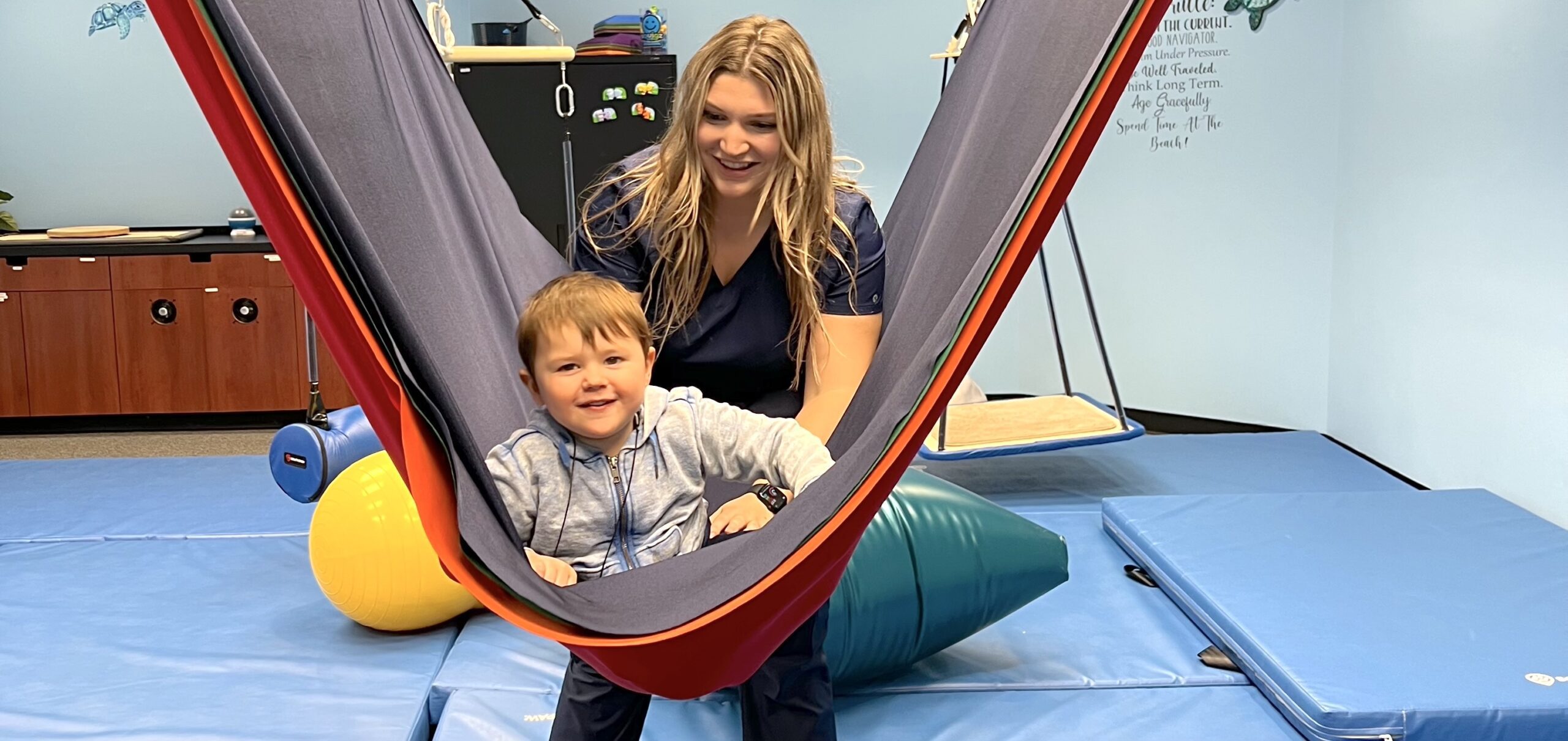The sensory powerhouses drive us to learn, grow, and expand. The sensory systems are designed to help us conquer the challenges of our world. However, when a powerhouse misfires, a child is faced with a chaotic world that is hard to understand and manage.
What are the Powerhouses?

Vestibular
What does it do?
-
- Responds to gravity and the constant flow of sensory information
- It lets us know where we are in space giving us a sense of direction
- It tells us if we are moving
- It stabilizes our eyes
- It’s the boss and regulates all our other systems
What happens if this system misfires?
-
- A child will always need to move, tumble, and fall
- Child may not understand heights; will not be safe
- Child will cry easily
- Can’t judge how close they are to others
- Easily triggered to fight, run, or freeze
- Will sit to go through doorways
- Will not allow head to be tilted, e.g., to wash hair
Proprioception
What does it do?
-
- This system takes in all of our information regarding our muscles and joints
- Tells us how our body’s parts relate to each other
- Tells us how to grade our muscle movements
- How fast, slow, soft, or hard to accomplish a task
- Develops our body map
- Helps us with speech production and planning how to move our body through our environment
What happens if this system misfires?
-
- Child is always clumsy and uncoordinated
- Shaky and disorganized letters, sloppy work, poor body awareness
- Easily fatigued
- Needs increased concentration to move body
- Banging head/hand on purpose
- Leaning on others for support
- Love roughhousing
- Stubborn and uncooperative
Tactile
What does it do?
-
- Keeps the brain organized by processing touch information
- Develops awareness of self
- Gives body information about how something feels: soft, hot, cold, rough
- Light touch is alerting
- Deep pressure touch is organizing
- Forms our concept of our world
What happens if this system misfires?
-
- Child may not want to touch or be aware of touch
- Excessive reaction to tags and clothing
- Can only give touch, can’t receive it
- Consistently chewing on clothes
- Child has no awareness they are hurt, bruised, or bleeding
- Can’t orient to touch or position of clothing
If you think your child may be struggling with sensory issues, please reach out.



